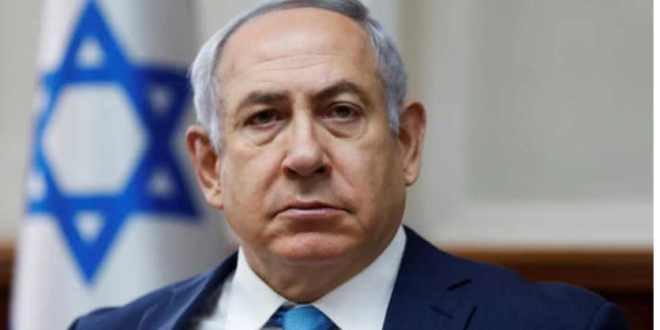Muhamad Yehia
TEL AVIV, Israel — After 16 months of excruciating uncertainty, Idit Ohel finally received word this week that her 24-year-old son, a hostage in Gaza, is still alive.
She said she fainted upon hearing the brutal detailapnews.com/…/israel-palestinians-hamas-war-news-ceasefire-hostages-02-08-2025-bf94014ccedeb15b4d235a1df57b563as of his captivity from freed hostages who had been held with him by Hamas since Oct. 7, 2023. Bound by chains in an underground tunnel, Alon Ohel has subsisted on a piece of bread or less each day.
“He hasn’t seen sunlight in 493 days,” she told reporters on Monday.
As the fragile ceasefire between Israel and Hamas seems increasingly at risk of falling apart — Hamas says it will not free three hostages on Saturday as planned, and Israel says it’s ready to resume the war if it doesn’t — families of the hostages are struggling to maintain hope. They are pleading with Prime Minister Benjamin Netanyahu not to give up on the ceasefire framework, and to speed up the timeline of releases if possible
Their worries about the ceasefire collapsing have been exacerbated by President Donald Trump’s demand that all of the hostages be freed by Saturday — and his insistence that Gaza be emptied of all Palestinians and redeveloped as a tourist enclave controlled by the United States
The emaciated state of three hostages released last Saturday has infuriated Israelis and terrified families of the remaining hostages, especially as more details come out about the conditions of their captivity
The situation is especially difficult for relatives of hostages who are not on the list of 33 hostages expected to be released in the ceasefire’s first, six-week phase, which began on Jan. 19. The agreement requires Israel to free 2,000 Palestinian prisoners and detainees, whose families are also worried about eir kidnapping, Idit Ohel said.
Cohen is expected to be released in the ceasefire’s first stage; Ohel would be freed in the second stage, if Israel and Hamas reach that point.
Levy, Ohel, and Cohen were kidnapped from a bomb shelter near a music festival in southern Israel, along with Hersh Goldberg-Polin, an American-Israeli who was killed in captivity in August.
“It breaks my heart to know he was chained and to know what happened to him in the tunnels from people in the tunnels,” Cohen’s fiancée, Ziv Abud, 27, told reporters on Tuesday.
The returned hostages said that Cohen had lost more than 20 kilograms (44 pounds) and had a bullet in his leg that did not receive medical attention. While they were with him, Cohen was unaware that Abud had survived the Hamas attack on the bomb shelter where they were hiding.
During the Oct. 7 attack, militants tossed grenades and sprayed bullets inside the concrete bomb shelter near the music festival, where almost 30 people had crammed inside. At least 16 people inside the shelter were killed.
Abud said she was protected by the crush of bodies above her. Going in and out of consciousness, she spent hours laying beneath the bodies of her nephew and his girlfriend
For families of hostages who are not scheduled for release in the first phase of the ceasefire, its uncertainty is even more difficult to bear.
Israel and Hamas were set last week to begin talks on a second phase of the ceasefire that would include an end to the war and the release of the remaining hostages. But those efforts have been frozen while the two sides trade accusations about whether the other is living up to the terms of the first phase.
Tamir Nimrodi, 20, an Israeli soldier kidnapped from his post at a main crossing between Israel and Gaza, is not on the list to be freed in the first stage.
His mother, Herut, said Hamas’ plan to delay the next hostage release came as a shock.
“We try to analyze it, think, what are the possibilities? Is this psychological terrorism they are pulling on us?” she said.
It’s been difficult watching the hostage releases over the past few weeks, Nimrodi said, especially the emotional videos of hostages reuniting with their families.
On the one hand, each reunion is a step closer to bringing back her son, whom she described as a creative person who loves riding horses and drinking sweet cocktails made with pineapple juice. But Nimrodi does not know if her son, who also holds German citizenship, is alive.
The other two soldiers he was kidnapped with were killed, and she has not received any sign of life from him.
“I know there is a chance I won’t get to the point where I can hold my son,” she said.
According to Israeli media, returning hostages have provided proof of life for at least seven Israeli hostages, including Cohen and Ohel.
Nimrodi doesn’t know what is worse — to believe her son is dead, or to receive information that he is alive, but held in conditions like Alon Ohel. “I’m scared if Tamir is still alive, I have no idea what he’s going through, I’m scared to even imagine,” she said
Idit Ohel received the information about her son’s condition less than an hour before she went on Israel’s Channel 12 news program earlier this week.
She sat at the news desk sobbing on live TV, pleading with the government to continue to the second stage of the ceasefire and bring all of the hostages home as soon as possible.
Alon, who also has German and Serbian citizenship, is a talented pianist. The family has placed pianos across Israel in his honor, many of which are yellow, the color associated with the struggle for the hostages
The family marked Alon’s second birthday in captivity on Monday evening in Tel Aviv, where his mother addressed the Israeli government. “After all the sights you saw, after all the testimonies you heard from the survivors of captivity, how do you allow this situation to continue?” she said.
Alon did remember his younger sister, Inbar, had a birthday on Saturday and delivered her a message through the hostages who were released that day.
“She got her birthday wish, to hear from her brother, which is incredible,” Idit said, through tears.
 موقع وجه أفريقيا موقع وجه أفريقيا هو موقع مهتم بمتابعة التطورات في القارة الأفريقية
موقع وجه أفريقيا موقع وجه أفريقيا هو موقع مهتم بمتابعة التطورات في القارة الأفريقية



